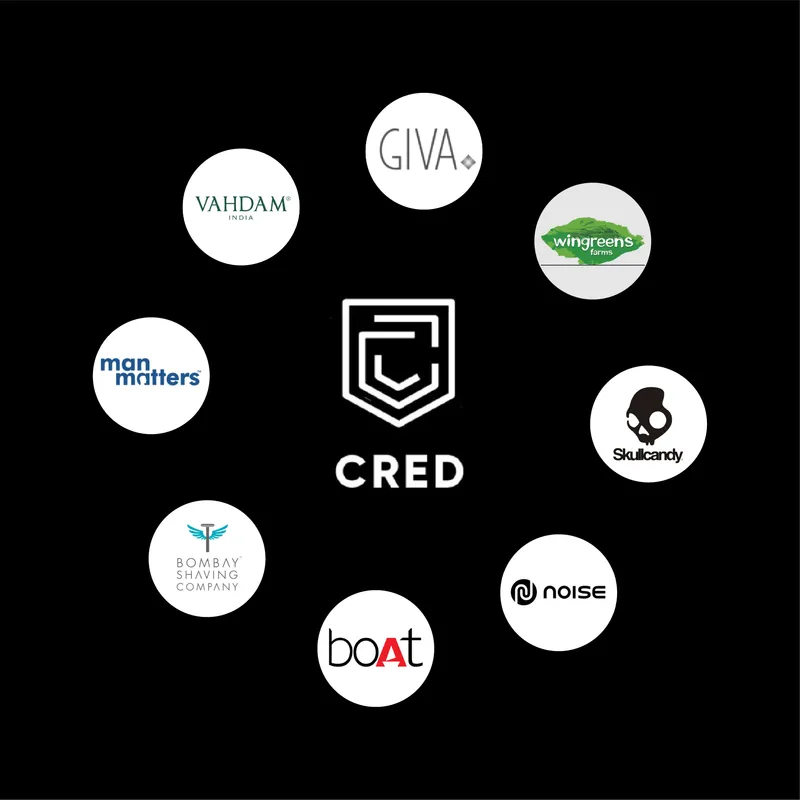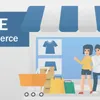CRED is riding the D2C wave with a new store, and here's why brands are lining up
Kunal Shah-founded CRED is known for reward points, P2P loans, insurance, and now it even has a store. While many digital brands are welcoming the store, it comes with a few strings attached.
Kunal Shah’s , one of India’s B2C unicorns, which classifies itself as a fintech startup, started by giving reward points to credit card users. It recently launched peer-to-peer lending, and now - it even has a store.
“With the store, we create an entertaining discovery-first shopping experience where members can try new products, which are filtered for quality at member-exclusive prices,” says a spokesperson for CRED, in a detailed questionnaire shared by YourStory.
CRED, which is only used by credit card users aka, the luxury purchasing population of the country, have direct-to-consumer (D2C) startups lining up to get in on the country's newest digital platform.
With CRED’s platform, D2C brands are looking forward to not only reach out to a premium customer base — who are most likely to buy their high-priced products — but also create brand visibility. The fintech platform’s swanky design, grouping products by categories and featured brands, provides them with differentiated visibility.

CRED is currently selling more than 2,000 products across personal care, electronics,
and grooming, among other categories. Image credit: YourStory Design
Currently, over 400 brands are on CRED store’s waitlist, standing by to be onboarded on the store's platform. The firm also sells other luxury brands including Bulgari and Tommy Hilfiger.
Digital-first brands including skincare brands and Dot and Key, electronics player , premium coffee brand , and men's grooming brand are among the 500 brands listed on the store.
CRED is currently selling more than 2,000 products across personal care, electronics, and grooming, among other categories.
The pandemic propeller
The pandemic outbreak and its resultant lockdowns and quarantines saw many homebound and bored consumers resorting to online shopping, and how!
While D2C brands, which already had an online presence, took this opportunity to double down on their digital channels — FMCG biggies including Hindustan Unilever (HUL), and Tata Consumer Pvt. Ltd. (TCPL), among others, started promoting existing and new brands on marketplaces and their own stores.
“In the last 12 months, when we look at the amount spent by these legacy brands on Facebook, Google, and other marketplaces, it makes it hard for brands like ours to get premium banner space. They have diverted a good chunk of their marketing budgets online in the past year, and there is a lot of pressure on all D2C brands,” Vineeta Singh, CEO and co-founder, SUGAR Cosmetics, had told YourStory in an earlier interaction.
Digital is the lifeline
An aggressive digital presence is more a necessity than a choice for any consumer brand these days. And this growing demand for online storefronts has made acquiring customers online more expensive.
Some D2C brands we spoke to, who did not want to be named, have seen their customer acquisition costs (CACs) double compared to pre-pandemic days, while a few other established players were able to keep their CACs under control.

D2C brands are lining up to get on the CRED store. Image Credit: YourStory Design
Ecommerce marketplaces, including and , also charge a commission on sales, anywhere between 15 and 20 percent depending on the product and the category. This made finding an alternative sales channel increasingly necessary for D2C brands.
Enter CRED with a new swanky store, and unlike other ecommerce platforms, CRED is determined not to treat every D2C brand the same.
“We work with a diverse set of brands, which are at different stages of growth. We understand their success metrics and help build respective growth plans on the platform,” says the CRED spokesperson.
For instance, a six-year-old personal care D2C startup, which is an established name in the ecosystem, is expected to cover the last-mile delivery cost. CRED not only gives its digital real estate for free but also pays the full cost even if the product is discounted on the platform.
“We treat CRED as a marketplace just like we would sell on Amazon or . Since we are not a discount-focused brand, whenever they (CRED) sell our products on discount, we still get the full payment. The discount is facilitated through CRED points,” says the founder of the personal care startup, who requested anonymity.
However, this is not the case for another D2C brand. The three-year-old recognisable brand operates in the same category but has to bear the discounts and the last mile delivery cost, while CRED gives them the real estate for free.
“CRED knows the value of their customer base and D2C brands are catering to that crowd only. So, they (CRED) are making different deals with different players because they are not operating like other ecommerce platforms, where creating brand visibility has become very expensive. They want to give D2C startups things they want but on their own terms,” says a D2C startup investor on the condition of anonymity.
While these are early days, and with a lot of D2C brands still waiting to get listed, the jury is still out. But the personalised treatment accorded by CRED will ensure that its users have a better-curated shopping experience, a first of its kind in India.
YourStory’s flagship startup-tech and leadership conference will return virtually for its 13th edition on October 25-30, 2021. Sign up for updates on TechSparks or to express your interest in partnerships and speaker opportunities here.
For more on TechSparks 2021, click here.
Edited by Anju Narayanan






